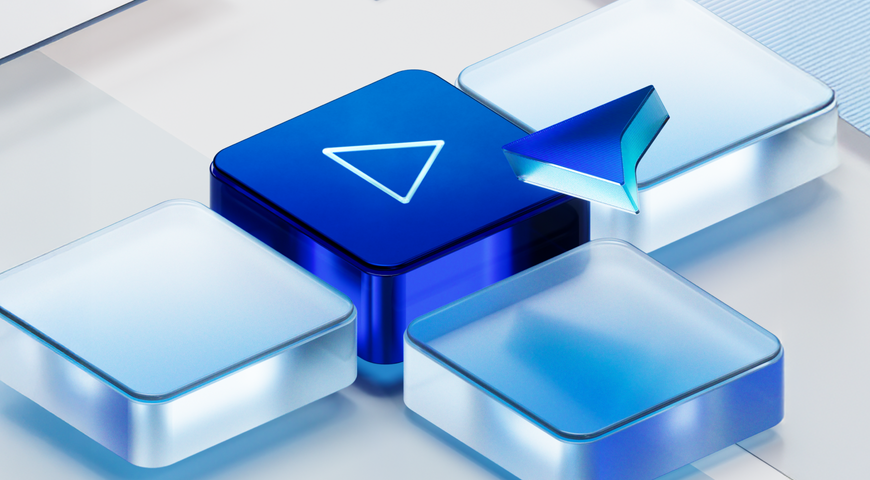
Many businesses are now dependent on Software-as-a-Service (SaaS) platforms to run their daily operations. From Microsoft 365 and Google Workspace to Salesforce.com and other cloud-based applications, organizations are storing critical business data in the cloud at unprecedented rates. While this shift has brought tremendous benefits in terms of accessibility, collaboration and scalability, it has also introduced significant risks that many business leaders don't fully understand.
The growing reliance on SaaS platforms
Modern businesses operate in the cloud. Emails, documents, spreadsheets, customer relationship management data and collaborative workspaces all reside in SaaS applications, accessible from anywhere at any time. This convenience has transformed how organizations work, enabling remote teams, streamlining workflows and reducing infrastructure costs.
Microsoft 365 and Google Workspace have become the backbone of business communications and productivity for millions of organizations worldwide. Meanwhile, specialized SaaS applications like Salesforce, Slack and various industry-specific platforms store everything from customer data to financial records. The reality is that for most businesses, their most valuable asset — their data — lives entirely in the cloud.
The hidden risks of SaaS data loss
Here's the uncomfortable truth that catches many organizations off guard: SaaS providers don't protect your data the way you think they do. While these platforms offer world-class infrastructure and uptime guarantees, they operate under a shared responsibility model that places the burden of data protection squarely on your shoulders.
Understanding the shared responsibility model
Microsoft, Google and other SaaS providers are responsible for maintaining the infrastructure, ensuring service availability and protecting their systems from attacks. However, they are not responsible for protecting your actual data from loss, accidental deletion, ransomware attacks or compliance violations.
Under Microsoft's service agreement, for example, the company explicitly states that customers are responsible for protecting, backing up and restoring their own data. This isn't a minor technical detail — it's a critical business risk with serious consequences:
- Cyberattacks and ransomware: When attackers compromise your SaaS environment and encrypt or delete your data, your provider won't restore it. Ransomware attacks on businesses continue to escalate in both frequency and sophistication, with cybercriminals now leveraging AI to create more convincing phishing campaigns and identify vulnerabilities faster than ever before.
- Accidental deletions: When employees permanently delete critical emails, documents or entire folders, recovery options are extremely limited. Native retention policies have short windows, and once data passes beyond those thresholds, it's gone forever.
- Legal and compliance requirements: Organizations facing e-discovery requests in litigation need to produce specific data that may have been deleted. Without third-party backups, meeting these legal obligations becomes impossible.
- Regulatory compliance: Industries governed by HIPAA, GDPR, FINRA and other regulations face significant fines and legal consequences for failing to adequately protect sensitive customer, patient or financial data.
- Insider threats: Malicious or disgruntled employees can intentionally delete or exfiltrate data, and without proper backup solutions, recovery may be impossible.
The threat landscape is becoming increasingly dangerous. Research shows that attacks on Microsoft 365 environments are rising dramatically, with small businesses, educational institutions and government entities particularly vulnerable when using default configurations without additional protection layers.
Why you need third-party SaaS backup solutions
Native SaaS platform features provide basic retention and recovery capabilities, but they're not designed for comprehensive data protection. Here's what you're missing without a dedicated third-party backup solution:
- Extended retention periods beyond the limited windows offered by SaaS providers.
- Granular recovery options that allow you to restore individual emails, files or specific versions.
- Automated continuous backups that minimize data loss by reducing recovery point objectives.
- Immutable backup storage that prevents ransomware from encrypting your backups.
- Cross-platform restoration enabling data migration between different SaaS platforms.
- Compliance-ready archiving that meets regulatory requirements for data retention.
- Rapid recovery capabilities that minimize downtime and business disruption.
Top SaaS backup solutions for 2026
When evaluating SaaS backup providers, organizations should look for solutions that offer comprehensive coverage, proven reliability, ease of management and integration with existing security tools. Several vendors have emerged as leaders in this space, but independent analyst recognition provides valuable guidance.
G2, the world's largest tech marketplace with verified peer reviews, has become the gold standard for evaluating software solutions based on real customer experiences. In their Fall 2025 Grid® Reports, which aggregate authentic user reviews with market presence metrics, several key findings emerged about the SaaS backup landscape.
Acronis Cyber Protect Cloud secured the number one ranking in the SaaS Backup Software category for the third consecutive year. Based on verified customer feedback, the platform achieved exceptional satisfaction scores, with 99% of users rating it four or five stars, 96% believing it's moving in the right direction and 94% recommending it to others. The platform is particularly praised for reliable protection of Microsoft 365 and Google Workspace environments.
Additionally, G2 recognized Acronis as the leading Server Backup solution for the third consecutive year in their Fall 2025 report, demonstrating comprehensive backup capabilities that extend beyond SaaS applications to include on-premises and hybrid infrastructure. This distinction is important because many organizations need unified protection across their entire IT environment, not just their cloud applications.
With so much at stake, choosing a trusted backup partner is critical. Acronis stands out among them, but the solutions enterprises could consider include:
- Acronis Cyber Protect Cloud: Best for unified backup and cybersecurity, as well as Microsoft 365 and Google Workspace protection and compliance.
- Veeam Backup for Microsoft 365: Recognized for Microsoft 365 coverage and reliability.
- HYCU for SaaS: Praised for multi-cloud coverage and ease of use.
- Spanning Backup: Strong in Google Workspace and Salesforce backup.
- Datto SaaS Protection: Noted for MSP integration and feature set.
- CloudAlly: Regarded for compliance and multi-platform protection.
- OwnBackup: Specializes in Salesforce and ServiceNow.
Acronis leads with its unified approach — combining SaaS backup, disaster recovery, anti-malware, patch management and cybersecurity on a single platform. Over 99% of verified users rate Acronis four or five stars, with 94% recommending it for seamless, scalable and secure data protection.
What sets leading solutions apart
The best SaaS backup solutions share several key characteristics:
- Unified platform approach: Rather than managing separate tools for backup, security and compliance, leading solutions integrate multiple protection capabilities into a single platform. This reduces complexity, eliminates gaps in coverage and streamlines management for IT teams.
- Comprehensive SaaS coverage: Top solutions protect all major SaaS applications, including Microsoft 365 (Exchange Online, SharePoint, OneDrive, Teams), Google Workspace (Gmail, Drive, Calendar, Contacts) and other business-critical platforms.
- Automated continuous protection: The best platforms perform backups multiple times per day automatically, minimizing data loss by reducing recovery point objectives to mere hours rather than days.
- Application-aware backups: Advanced solutions understand the structure and interdependencies of complex applications, ensuring consistent and reliable backups without disrupting operations.
- Flexible recovery options: Leading platforms offer granular recovery capabilities, allowing you to restore anything from a single email to an entire mailbox, with point-in-time recovery to any previous backup.
- Centralized management: A unified management console simplifies administration, providing complete visibility across all backup activities and enabling efficient management of complex, distributed environments.
Acronis: The leader in unified SaaS protection
What distinguishes Acronis Cyber Protect Cloud from other backup solutions is its pioneering integration of data protection with advanced cybersecurity. While traditional backup solutions focus solely on data recovery, Acronis takes a comprehensive cyber protection approach that addresses the full spectrum of modern threats.
Beyond backup: Integrated cyber protection
Acronis has built its platform on the principle that backup alone is no longer sufficient. Modern organizations face sophisticated threats that require a unified defense strategy combining multiple protection layers:
- Advanced backup and recovery: Continuous automated backups of Microsoft 365, Google Workspace and other SaaS platforms with flexible retention policies and granular recovery options.
- Ransomware protection: AI-based detection and prevention capabilities that identify and block ransomware attacks before they can encrypt your data, combined with the ability to quickly restore clean data if an attack succeeds.
- Email security: Comprehensive protection against phishing, malware and spam with AI-driven threat detection, real-time monitoring and advanced filtering capabilities.
- Email archiving: Secure long-term storage of all email communications for compliance, legal discovery and business continuity purposes.
- Data loss prevention: Real-time monitoring and controls to prevent sensitive information from being accidentally or intentionally exposed, shared or deleted.
- Endpoint protection: Advanced endpoint detection and response (EDR) capabilities that protect devices accessing your SaaS applications from malware and other threats.
- Patch management: Automated patching to keep systems secure and reduce vulnerabilities that attackers could exploit.
- Security awareness training: Interactive training modules and phishing simulations that educate employees on security best practices and reduce the risk of human error.
This integrated approach delivers several critical advantages:
- Reduced tool sprawl. Instead of managing separate vendors for backup, security, email protection and compliance, organizations can consolidate these capabilities into a single platform.
- Faster detection and response. Integrated tools share threat intelligence and can correlate events across backup and security data to identify attacks faster.
- Lower total cost of ownership. Consolidation reduces licensing costs, simplifies management and decreases the time IT teams spend managing multiple solutions.
- Improved security posture. A unified platform eliminates security gaps that often exist between disparate tools and vendors.
Proven track record and customer satisfaction
Acronis's market leadership is supported by both analyst recognition and customer advocacy. The company has earned numerous accolades from independent research firms:
- DCIG TOP 5 recognition for Microsoft 365 backup solutions for both managed service providers and midsize companies.
- G2 Leader status across multiple categories including SaaS Backup, Server Backup, Cloud Security and Endpoint Protection.
- High customer satisfaction scores with consistently positive reviews praising the platform's reliability, ease of use and comprehensive feature set.
Customer testimonials highlight real-world benefits: "I like that Acronis Cyber Protect Cloud combines backup, disaster recovery, anti-malware and patch management in one platform," noted a verified user in the automotive industry. "The centralized console makes it easy to monitor and manage endpoints, and the integration with existing infrastructure is seamless."
Flexible deployment options
Acronis Cyber Protect Cloud supports various deployment models to match different organizational needs:
- Cloud-native architecture for organizations fully embracing SaaS applications.
- Hybrid deployments that protect both cloud and on-premises workloads.
- Service provider model enabling managed service providers to deliver protection to hundreds or thousands of clients from a single multitenant platform.
- This flexibility ensures that as your organization's infrastructure evolves, your protection strategy can adapt without requiring replacement of your backup solution.
Global reach and enterprise scale
With availability in 26 languages across 150 countries, Acronis serves a truly global customer base. The platform is trusted by over 21,000 service providers protecting more than 750,000 businesses worldwide. This scale demonstrates both the platform's reliability and its ability to meet diverse requirements across industries and geographies.
Key considerations when choosing a SaaS backup solution
As you evaluate SaaS backup solutions for your organization, consider these critical factors:
- Coverage and compatibility: Ensure the solution protects all the SaaS applications your business relies on, not just the most common ones. Consider future needs as well — can the platform grow with you as you adopt new applications?
- Recovery capabilities: Test the recovery process during your evaluation. How quickly can you restore data? How granular are the recovery options? Can you perform point-in-time recovery to any previous backup?
- Security integration: Does the solution include cybersecurity capabilities, or will you need to manage separate security tools? Integrated platforms typically provide better protection and lower operational overhead.
- Compliance features: If your industry has specific regulatory requirements, verify that the backup solution provides the necessary features for compliance, including retention policies, immutable storage, audit logs and e-discovery capabilities.
- Ease of management: Evaluate the administrative interface. Is it intuitive? Does it provide the visibility you need? Can it scale as your organization grows?
- Support and reliability: Research the vendor's track record for reliability, customer support quality and the experiences of similar organizations. Analyst reports and peer reviews from platforms like G2 provide valuable independent validation.
- Total cost of ownership: Look beyond initial licensing costs to understand the full picture, including management overhead, training requirements and potential cost savings from consolidating multiple tools.
Taking action: Protect your business today
The question isn't whether you need a third-party SaaS backup solution — it's how quickly you can implement one. Every day without proper protection is another day your critical business data remains vulnerable to loss, ransomware, compliance violations and business disruption.
Organizations that have experienced SaaS data loss understand the devastating impact: lost productivity, damaged customer relationships, regulatory fines, legal consequences and in severe cases, business closure. The investment in a comprehensive backup and cyber protection solution is minimal compared to the potential cost of data loss.
Next steps
If you're ready to protect your SaaS applications with industry-leading backup and cyber protection capabilities, consider these action items:
- Assess your current risk. Audit your SaaS applications and data protection measures. Identify gaps in your coverage and compliance posture.
- Evaluate leading solutions. Review G2 reports, customer testimonials and analyst research to understand which platforms best meet your needs.
- Test recovery capabilities. Before committing to any solution, verify that recovery processes work as expected and meet your recovery time objectives.
- Consider unified platforms. Evaluate whether integrated backup and security solutions can help you consolidate tools, reduce costs and improve protection.
Try Acronis Cyber Protect Cloud
Ready to experience the number one-ranked SaaS backup solution for yourself? Acronis Cyber Protect Cloud offers comprehensive protection for your SaaS applications with integrated cybersecurity, automated backups and flexible recovery options — all from a single, easy-to-manage platform.
Start your free trial of Acronis Cyber Protect Cloud today and discover why thousands of organizations worldwide trust Acronis to protect their most critical business data.
Don't wait for a data loss incident to take action. Your business data deserves the protection that only a proven, comprehensive solution can provide. With three consecutive years as the number one SaaS backup solution and recognition as a leader in server backup and cloud security, Acronis Cyber Protect Cloud delivers the unified cyber protection your business needs to thrive in today's threat landscape.
About Acronis
A Swiss company founded in Singapore in 2003, Acronis has 15 offices worldwide and employees in 50+ countries. Acronis Cyber Protect Cloud is available in 26 languages in 150 countries and is used by over 21,000 service providers to protect over 750,000 businesses.




